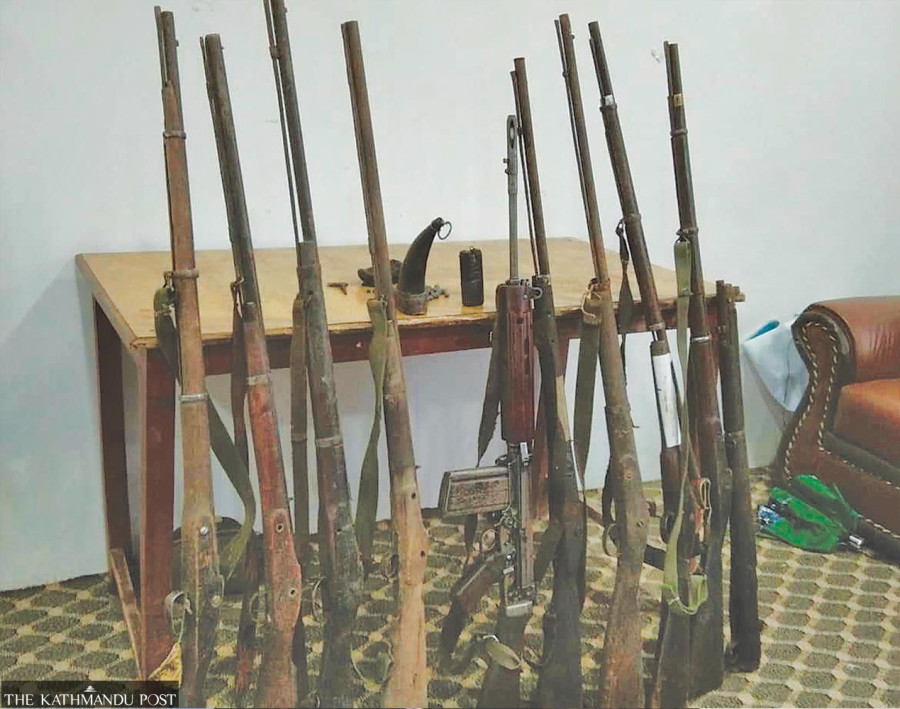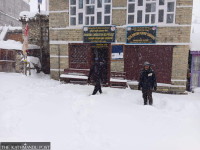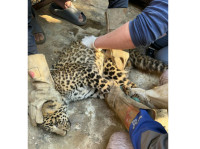Gandaki Province
Poaching, smuggling go unchecked in Dhorpatan due to security lapse
Taking advantage of the poor security situation, poachers and smugglers hunt animals and birds illegally and smuggle timber as well as medicinal herbs.
Prakash Baral
Poaching of birds as well as animals and smuggling of wood and precious medicinal herbs have been going on unchecked in Dhorpatan, the only hunting reserve in Nepal, due to poor security presence.
Spread over a total area of 1,325 square kilometres, the hunting reserve is in the Dhaulagiri mountain range and touches Baglung, Myagdi, and East Rukum districts. Sixty percent of the reserve lies in East Rukum covering much of the Putha Uttarganga Rural Municipality where there is not even a single security post.
“We have security challenges to control illegal poaching and smuggling of animal parts, medicinal herbs and timber in the Dhorpatan area,” said Birendra Raj Kandel, chief conservation officer at the reserve. “Lack of security posts and shortage of human resources in the existing posts are the main problems in combating poaching and smuggling.”
The Devi Baks Battalion of Nepal Army has been deployed to provide security in the hunting reserve. But it does not have a security post in East Rukum that covers 60 percent of the reserve area. The Army provides security only at the reserve’s headquarters in Patan, the entry point to the reserve in Deurali of Baglung and Gurjaghat area in Myagdi.
Kandel argues that the shortage of employees also affects conservation works at the reserve. “There are a total of 72 employee positions in the reserve, but there are only 55 employees. We have difficulties even carrying out day-to-day administrative work due to the human resources shortage,” said Kandel.
A police post in the Patan area was shifted to Bobang during the Covid pandemic leaving the reserve exposed to illegal hunting and poaching. The closest police post from the reserve is in Bobang, which is around 20 km from the reserve’s headquarters.
“The reserve has to face hurdles due to the lack of police presence,” Kandel said. “We have no alternative but to inform the police over the telephone and prepare a crime scene report with the help of Nepal Army in case any illegal weapons, animal body parts or smuggled wood and herbs are seized in the reserve area.”
Taking advantage of the poor security situation, poachers and smugglers hunt animals and birds illegally and smuggle timber as well as medicinal herbs. As per the data available at the reserve, two Himalayan gorals and a Himalayan blue sheep were killed in the past three years. A total of 16 people were arrested with around 5,000 kg of medicinal herbs of different species and 1,500 cubic feet of timber during the same period.
The reserve recently launched a security patrol and seized nine firearms from various places. According to Kandel, the seized arms were used by the poachers to hunt wild animals and birds illegally. One self-loading rifle, one .303 rifle and seven muskets were confiscated during the security drive. The firearms were handed over to the district administration office for investigation on Saturday.
The locals have been complaining to the authorities about the poor security situation in the hunting reserve area. “The smuggling of wood and medicinal herbs goes unabated,” said Indra Bahadur Sunar of Dhorpatan Municipality-8. “The hunters kill wild animals and birds due to poor security arrangements in the reserve area.” He urged the government to strengthen security in the reserve area.
Dhorpatan Hunting Reserve was established in 1983 and its notice was published in the Nepal Gazette four years later. The reserve is home to 32 species of mammals and 137 bird species. Himalayan blue sheep, leopard, goral, Himalayan tahr, black bear, barking deer, wild boar, pheasant, and partridge are the major animals and birds found in the reserve. Some endangered birds and animals including musk deer, red panda, cheer pheasant and Danphe, which is Nepal’s national bird, are also found in the reserve.
The government allows hunting enthusiasts to hunt specific species of animals in the reserve each year. The Department of National Parks and Wildlife Conservation issues permits to hunt a specified number of Himalayan blue sheep and tahrs through competitive bidding.




 9.83°C Kathmandu
9.83°C Kathmandu.jpg)











